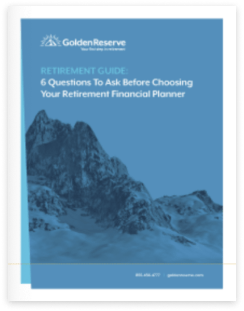Retirement Guilt: We Hesitate to Spend, Yet Overlook Advisor Fees
All our working lives, we dream of what we’ll do with the money we’ve saved and the…

The Two Taxes You’ve Never Heard of but Ought to Know About
You’ve worked hard, paid your taxes, and—with the right planning—should be able to enjoy a tax bracket lower than you did in your peak earning years. Yet just when you think you can finally catch a break, Uncle Sam may have a couple surprises up his sleeve. Get ready for the “widow’s & kiddo’s” taxes.
These two often overlooked taxes hit you when you least expect it, and unfortunately, at a time when you and your family are likely most vulnerable. Let’s break down what you need to know and how to prepare.
The Widow’s Tax
Losing a spouse is difficult. Getting a bigger tax bill following your loss certainly doesn’t help. What we call the widow’s tax, or widow’s penalty, refers to your change in tax filing status from married to single after your spouse dies. While you can continue to file as married for the tax year in which your spouse passes, subsequent years will reflect the change. For many retirees on a fixed income, filing as single puts them in a higher tax bracket.
If your deceased spouse’s social security benefits are higher, you might choose to claim theirs. Unfortunately, the tax brackets for social security benefits are also more favorable for joint filers. You could find a greater percentage of your benefits subject to taxation—jumping from 50% to 85%.
But fear not! Paying the widow’s tax is not a forgone conclusion. Your retirement planner can help you strategize on how to avoid it and create an income plan that takes minimum distributions into account. Depending on your situation, they may recommend converting your IRA to a Roth IRA, so you can pay taxes on the money now at your married filing jointly rate. If you have permanent life insurance, they’ll also factor into your plan the lump sum payment it provides, which in most cases isn’t subject to taxes.
The Kiddo’s Tax
You’ve probably planned your inheritance to help provide for your loved ones after you’re gone. But what if that inheritance doesn’t go as far as planned? That’s precisely what happens when Uncle Sam takes a cut that’s larger than expected.
Why does this happen? It’s simple: your heirs pay taxes on their inheritance at their rate, not yours. Often because they are at their highest earning potential, their tax bracket is higher than the one you enjoyed in retirement. Current tax law has given us a break, thanks to the “step-up in basis at death” provision, which applies to appreciable assets such as real estate or a family farm. Under the provision, your heir would only have to pay capital gains taxes on appreciation that occurred after the asset was inherited, not since you acquired it.
Not only can a retirement planner help you navigate this, but they can also keep an eye on potential changes to tax law that could affect your gifting strategy. For instance, the Biden administration has proposed eliminating the step-up in basis at death provision and increasing the capital gains tax rate. As we explain in this article, that has the potential to massively increase your heirs’ tax bill. When it comes to planning for such a change, you don’t want to go it alone.
Planning for taxes is never fun, but we can make it less painful. With experienced retirement planners, on-staff CPA guidance, and elder care and estate planning law partners, we’ve got the expertise you need to stay one step ahead. Schedule a no-obligation consultation to learn more.

Share this article
All our working lives, we dream of what we’ll do with the money we’ve saved and the…
Recently, a publication targeted toward financial advisors published an article wondering if advisor fees based on assets…
“Set it and forget it,” is the financial industry’s refrain for retirement success; as in, invest in…
Maybe You Shouldn’t Hang Out with Eddie In this adaptation from Golden Reserve Founder Greg Aler’s new…